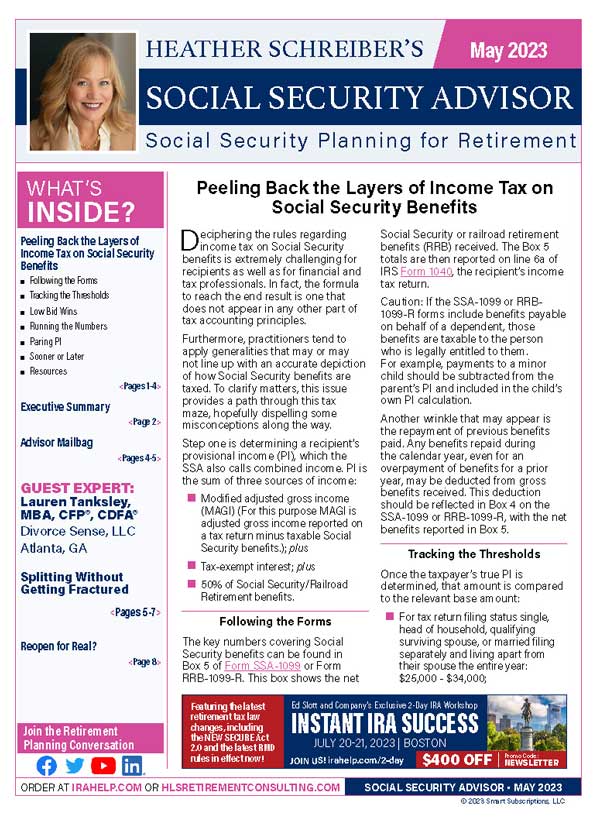For Retirees, New Place Like Home?
Many online articles list the best places to live in retirement. Often, financial issues are key determining factors.
For example, the most recent retirement rankings methodology from U.S. News & World Report gives 40% weight to housing affordability and retiree taxes. Plus, another 9% to the local job market, in case seniors want or need full- or part-time work once paycheck deposits cease.
Of course, money matters. Still, other factors can be more important when choosing a place to live that will lead to enjoyable sunset years.
Retirees Ready to Relocate?
Once people are no longer tethered to a specific workplace, the opportunity to move becomes a reality. Relocation could mean choosing a different city, state, region of the U.S., or even a new country altogether.
That said, a change in mailing address shouldn’t be taken lightly. Here, in order of importance, are things to consider:
Health Concerns
For senior couples and senior singles, nothing is as crucial as maintaining health while aging. That’s why it’s vital to be confident that moving won’t result in reduced access to reputable physicians and well-equipped hospitals. Retirees with severe health conditions might want to stay local to be close to valued doctors and other providers, no matter how appealing a change of scenery might be.
On the other hand, medical issues might lean to the opposite path. Those with severe arthritis might yearn for low humidity, year-round, for instance.
What’s more, retirees who have yet to reach Medicare eligibility at age 65 should research their options for ongoing healthcare coverage before a long-distance move is put into motion.
Friends
A change in local also likely means a change in routine and fellowship with long-time companions. Choosing a new town can be exciting but also stressful, so researching options to continue the social comradery one is used to is important. Retirement will likely be more enjoyable if opportunities abound to meet others in similar stages of life.
Family
Seniors probably will cherish visits with children and grandchildren. Moving away—and seeing them less frequently—might be heartbreaking. Conversely, a prime reason to relocate could be to live nearby now-distant loved ones.
Weather
It’s hard to put this on top of the list but also difficult to leave weather out entirely. After decades of dealing with chilling weathers, permanent shorts and sandals could be a desired lifestyle.
After pondering the above factors, retirees and pre-retirees may well decide that it’s time to move on, or at least start doing some research. That’s when the numbers can come into play – housing prices, overall cost of living, state and local income, sales, and property taxes.
If you are a financial or tax professional, talking to your clients contemplating a move about the various financial aspects of relocation can be true value-added. Good enough, it’s hoped, that clients will still be on board even after a change in domicile.
The Real Deal: Retiree Relocation Decisions
Regardless of the relocation decision, retirees must make some choices about where they live. If staying in the same area is the choice, does that also mean staying in the same home?
After all, selling a long-term residence will trigger one of the best breaks in the tax code. As long as the house sold was the principal residence for two of the preceding five years, up to $250,000 of gain will be tax-free; for married couples filing joint tax returns, the tax exclusion goes up to $500,000. (Even larger profits will be favorably taxed as long-term capital gains.)
After a sale, more money can be saved if a replacement house is less expensive, perhaps with a lower property tax obligation.
Or, a retirement home can be rented, freeing up more of the sales proceeds for other expenses in retirement. The rental choice could be especially appealing after relocation, as retirees can take some time to explore the area and decide whether to buy a home or keep renting—or go somewhere else altogether.
Rather than relocate, many retirees will opt not only to remain in their home town, but actually remain in their home. The benefits include familiarity with neighbors and neighborhood as well as a lack of the stress that can come with a home sale and a new residence to select.
Fortunately, retirees who stay put can tap any equity earned if the home has appreciated. They can do so by taking out a reverse mortgage, such as the popular Home Equity Conversion Mortgage (HECM).
Often, HECM borrowers choose to establish a line of credit, which can be drawn down when needed. Proceeds are untaxed, as is the case with any home mortgage, so this strategy may work well for homeowners in high tax brackets. Using the cash flow from a reverse mortgage for living expenses may enable people in their 60s to delay Social Security as late as age 70, maximizing lifelong and survivor benefits.
If you are a financial or tax professional, walking clients through the costs and cash flow of a reverse mortgage may be an excellent way to retain retirees’ accounts and perhaps gain more business from their younger relatives.
Retirement is intended to be the reward for a journey well navigated. Helping your clients thoughtfully consider the variables to a move can help them transition to a new dream location with greater confidence.
- Understanding Medicare’s Initial Enrollment Period - August 2, 2024
- Social Security Cost-of-Living Adjustment for 2024: The Numbers Are In! - November 13, 2023
- The Importance of the Medicare Open Enrollment Period - November 3, 2023





